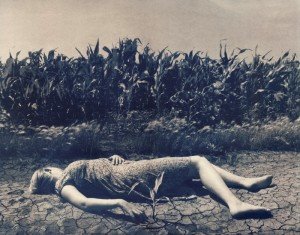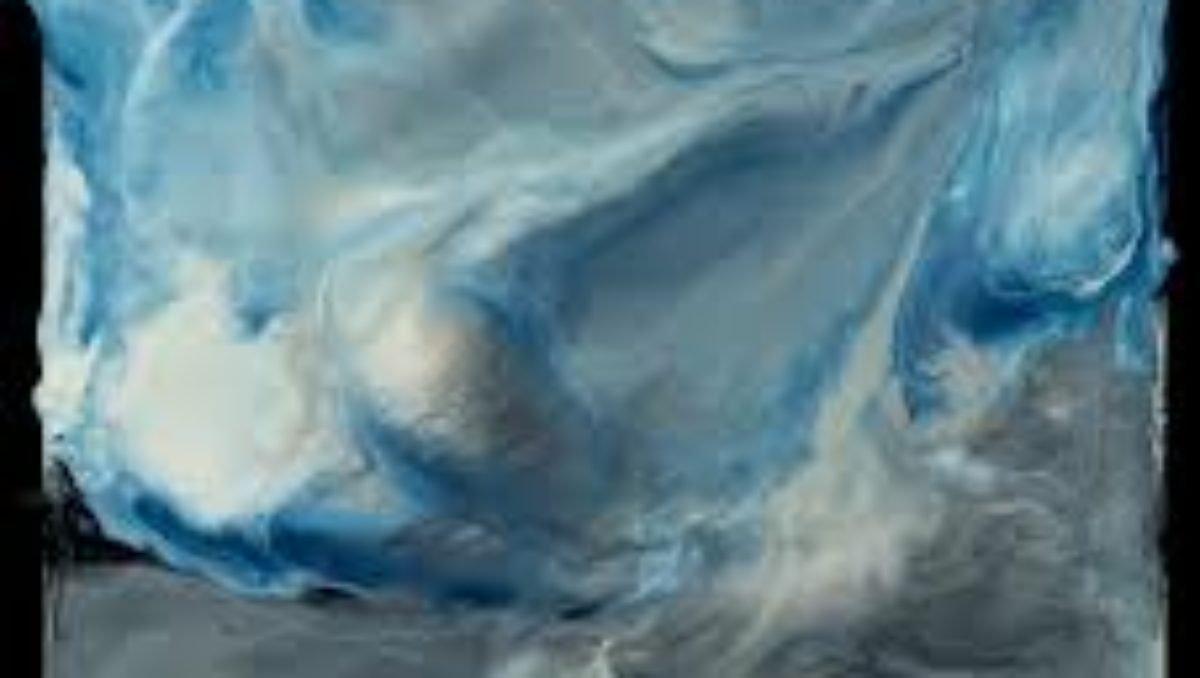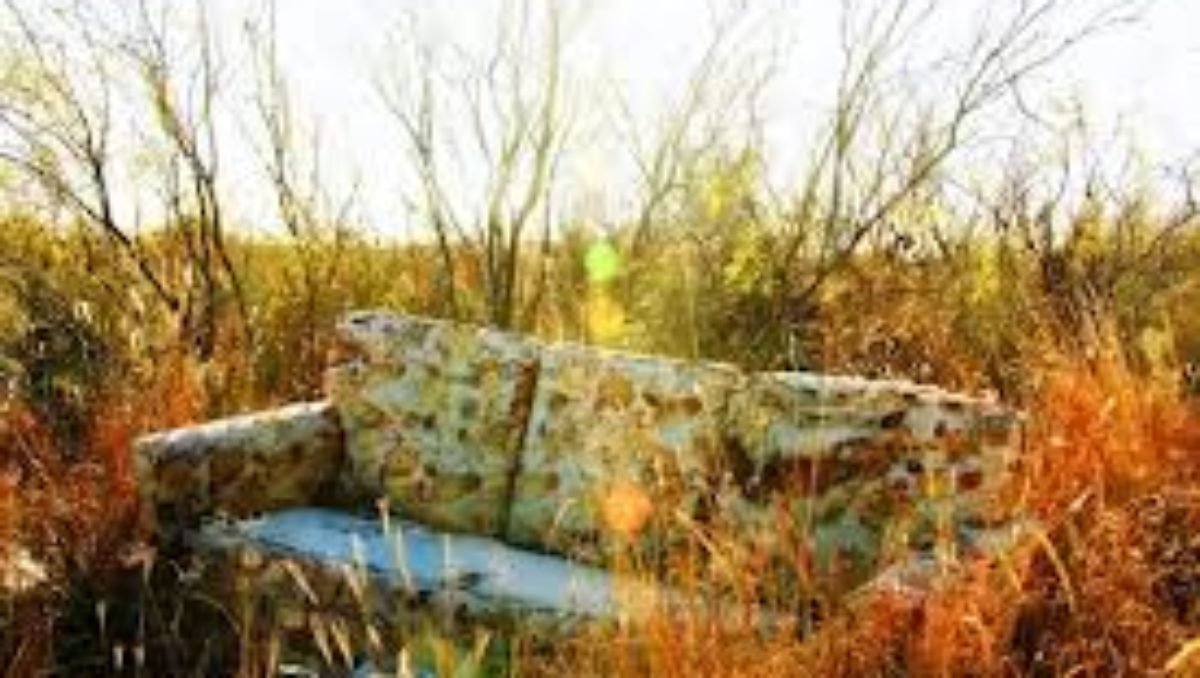NEW YORK TO PHILADELPHIA by Lynne Procope
Well I’m not supposed to see you looking
I’m not supposed to stare straight into your eyes… – Lucero
Let’s say Philadelphia’s a city constructed entirely of door knobs,
one great opening, one endless turning into something new.
Your voice is on the phone, love, is a rocks glass overflown
with whiskey and burning. Your thumbs slip from keypad
to six string, your thumbs are the teeth of wild city cats.
I’m only ice. I’m inanimate without your mouth. I’m cracking.
Let’s say New York does me in. This city’s riddled
with pothole metaphor, with stay. These streets are slipping
in upon themselves. Everything is so hungry. My legs
stumble under all this – give in. There was a plain precision
to your hands, and each was a thousand and each owned
a fist of hunger.
I say there was a night we swallowed the city in cobbled slices
we took the city in, one sharp sheet of glass and scaffold at a time
and our drunk breathing and the frost on the sweet gum trees.
Your hands were a thousand and then they were only two.
I was a dozen women or just this one. I was a woman
you were missing. You were all night and all of a day even after
we pulled the city down, even after all the rest of you
was trembling, even after all the rest of you was gone.
LIFT by Muriel Nelson
Doubt seems to be in.
The worry drill whirs
where the dote is.
Where the face was
a vacancy. And yet
the ear is occupied
waiting, for there are
other root canals, so you (mis)heard. No doubt the fire’s hunger whirls
its roar and weather down your
ear while eating sky and licking
daylights off dry trees. Just as
you think you get the picture a
huge sun puts tongues in cheek
and pushes its round belly from
your table. Sets awhile. Your
breath is rising. A tree that you can feel leans toward a mountain. It is
still. The mountains sleep just now. Their dark breasts. You breathe.
In the night above these mountains, the tiny plane your son is flying
lifts. It lifts on air you breathe. It disturbs the air ahead of him and
then the air you think you just breathed out, not him. You breathe.
The phone’s still silent. Breathe.
Listen to Muriel Nelson’s reading of “Lift” below…
[soundcloud url=”http://api.soundcloud.com/tracks/72726642″ params=”auto_play=false&show_artwork=false&color=b50f18″ width=”325″ height=”166″ iframe=”true” /]
SPELL I by Mary Lou Buschi
After Louise Glück
1.
Somewhere, my brother is traveling—
The right side of his head
a red-clawed tulip
swallowing the cold.
2.
Where to look—
down the long expanse of each train car
rocking through a dimly lit tunnel
dark buckling around me
as the car rises up above a city.
When did I last hear my voice?
3.
What was it like?
Fast, bright—tinfoil between my teeth
And then nothing—for a while.
Listen to Mary Lou Buschi’s reading of “Spell I” below…
[soundcloud url=”http://api.soundcloud.com/tracks/74516961″ params=”” width=”325″ height=”166″ iframe=”true” /]

Michelle Butler, “Transfiguration” (2012); encaustic on board
Mary Lou Buschi’s poem influenced this encaustic painting by Michelle Butler. The artist explains: “The poem struck me as a moment of transition, so I wanted to represent the push- and pull-forces… beyond our control when we are in transition. The… ominous grey of struggle [is] gently pulled into turquoise — a color that universally symbolizes healing. The movement of the pigment in the wax and layers is evident so you can see and literally feel the journey.”
HOOK ECHOES by Kevin Heaton
Sunshowers spit-shined the shark’s
tooth that gutted Kansas’ only diamondback.
You were just a puff adder feigning rattles—
scavenging rat droppings with field mice
in bales of switchgrass.
I want tallgrass.
I want a thunder god with flashes of ego—
a two-storied sod house near an artesian well—
flag-side-up roses.
Wall clouds that squall more than hook echoes.
I want storms made out of water—rain that doesn’t flinch
at dust—ballsy wheat—flaxen—fully-headed—two fresh
holstein heifers, & slow-churned farm butter.
I want forty ripe acres of Amish maize—two mules,
& a bullmastiff named Shep who eats corn snakes.
I want to break a green feather bed with a Dundee man.
THE DANGERS OF TIME TRAVEL by Gerardo Mena
You wake up in the future and realize that everyone has evolved. People now have the head of a blue jay and the body of a shiny machine that whirs softly as its insides spin. You see two bird heads that look like your parents, but, of course, that is not possible.
When they see you they cry and shake their heads slowly with disappointment because you are not like them. I’m sorry, you say, your voice rough and hard from one thousand years of sleeping. We are all dying, they sing, their voices like glockenspiels.
Below, watch Gerardo Mena’s original video for “The Dangers of Time Travel”…
MOLES by Matthew Haughton
Something had to be done about the moles;
labyrinths stretched from the garden
down to the hollow. Give moles an inch
and they’ll burrow up to your door.
So we dug holes in their paths and filled
them with old coffee cans. Bleary eyed,
dirty noses raised, down in the can
they’d be covered in silt like coal-miners
pulled from a cave-in. If you weren’t cruel,
you carried them over to the woods
to knock them out of the cans. Mad as piss,
they’d shovel off in the light to other pastures.
Listen to Matthew Haughton’s reading of “Moles” below…
[soundcloud url=”http://api.soundcloud.com/tracks/72455869″ params=”auto_play=false&show_artwork=false&color=b50f18″ width=”325″ height=”166″ iframe=”true” /]
BOY IN A FIELD by Shannon Elizabeth Hardwick
Boy in a field understand The lame
Hearted go to him mouth filled
Broken He brings the horses
Of his grandfather His hands wheat
Heavy I have seen him Monster himself
With river-sickness and a girl His mother
Maybe as a girl It is hard to say
Her story Tell it He is afraid The lame
Hurt too Hearts in the coal filled even
The horses’ lungs He will bring them
I have seen him afraid of himself
His river-sickness Bring him
Horses Tell her story The girl broke
His wheat-heart It is hard to say Why
He is afraid Maybe a girl hurt too
Go mouth filled Black lung-wings
He will bring the lame I have seen
Him monster himself I understand
Why Tell him I love Bring him
Listen to Shannon Elizabeth Hardwick’s reading of “Boy in a Field” below…
[soundcloud url=”http://api.soundcloud.com/tracks/70835595″ params=”” width=”325″ height=”166″ iframe=”true” /]

Shannon Elizabeth Hardwick took this photograph and chose to pair
it with her poem because it embodies “a sense of abandonment and
at the same time, anticipation for things not-yet-lost.”
TOWN OF THE BELOVED by Allison Seay
We rested on a blanket by the water
where I combed the sand and spoke your name gently
You slept but I was not tired and never have I studied
the fullness of a back not even of the dying
propped on their sides as I did yours then
I tried to mimic your breathing though I did not close my eyes
at least not for long instead I kept a kind of vigil
swatting for you what seemed a thousand nameless insects
See it was afternoon the ocean warm to boredom
boat oil and pelicans and I thumbed through a book
while I waited for you to stir to apologize but for what
for disappearing for leaving me to distinguish alone
my desires to want you or want to become you
Wake up please wake so that I might tell how it is
I can for you sit all day in a field of sand
Listen to Allison Seay’s reading of “Town of the Beloved” below…
[soundcloud url=”http://api.soundcloud.com/tracks/71705221″ params=”” width=”325″ height=”166″ iframe=”true” /]
GOSSIP TOWN by Allison Seay
When Esther is pouting and knows I am bored with her
she asks if I am having one of my Days,
and I say What? meaning no, meaning yes
I am, and she says again and louder, “Are you having
one of your Days” and the word Days is like a string
of beads she pulls from her mouth,
a long accusatory sound (like feign or blame).
We gossip to kill time though she thinks it is only
any good in a town where people hate (as in hate) other people.
For instance, Hazel Hamilton was dead in her house three days
before anyone went to see her, mostly meaning well.
If I had tried, I could have spied her in the wingback
through a slit in the curtain. Sometimes when I have a Day
(as in Hazel) I spend the afternoon in the yard
and imagine her nest of white hair
peeking over the other side of a mouth-high fence,
ivy draping either side to keep in or keep out
whatever needs keeping. Esther reminds me
about being unkind
lest I die alone and unfound in a chair by a window.
It is such an example, she says, and I say of what
and she is in her pouting way on the paint-flecked glider
saying oh
I think you know
as though it is a secret between us
(what secret there are no secrets).
Listen to Allison Seay’s reading of “Gossip Town” below…
[soundcloud url=”http://api.soundcloud.com/tracks/71704983″ params=”” width=”325″ height=”166″ iframe=”true” /]
CHIMERA by Vievee Francis
I have no charms. Admittedly.
No gold comb can move through
This mane. My skin is not translucent.
It is not soft. Mine is a tail to fear. I know.
But from this goat’s body,
Up from my wood-smoke lungs, from
The milk of me, comes a song, a melody
To open your wounds, then lick them clean.
EPICUREAN by Vievee Francis
A hungry mouth, an empty mouth, insistent mouth,
mouth that would be filled by the seaweed of me,
that would crack the shell with a rock and take
its portion. The mouth gages its slide, gapes—
grotto mouth. Mouth where I might go to pray,
to fall upon my knees before. A mouth full of yes,
singer of heights and sorrows, Swannanoa of
a mouth. French Broad, Pigeon, a mouth so wet,
sweet as a North Carolina river. A mouth that keeps
its secrets like a mountain still. Moonshine mouth,
mouth of fiddles and laments. Yes, a mouth that knows
itself. Generous. No virgin’s pout, nor a greedy boy’s
insistence. Give me one that has been already schooled.
Not excess, but experience.
Epicurus did not advocate for wine,
but for salt of the skin,
and water to quench it. Paradox but not duplicity.
In my awe I would have this honest mouth, dive into the bliss
of it. Speechless mouth that makes its desires plain—
Who wouldn’t want to
draw from this cup the well? Give me a mouth
I might place my own chapped lips to in the heat
of summer. A mouth to sate, to surrender.
GRINGO by Brandon Courtney
Wetback. Fence-jumper. My father’s heart fists
with its yearly dying as he recalls his hired hand—
a Hispanic—burying
our tractor to its axle in a soup of snowmelt
to men who, every morning,
sit half-mooned around the greasy spoon’s table,
lifting Styrofoam cups to sunburnt lips:
hardscrabble farmers—chassis grease
gloving their hands, prove rumors
of neighbors’ gone
belly-up, face down, neighbors fenced-in
by stars. And I’m ten years old, impossibly here,
spit and image of men I’m warned to call sir,
men who’ve bottle-fed
my younger sister as tenderly as their own
daughters and they’re cursing, cursing.
It’s goddamn the weather, goddamn the busted baler,
goddamn the combine’s clutch chewed to shit
then one of the men says I would have shot
the little beaner right where he stood.
Everyone laughs.
I laugh too, although I don’t
know what spick means, beaner,
only that my father is coughing, which means
one more year, two if he’s golden,
which is nothing
to cemetery soil, the patience of the open grave.
The others stay, careless in conversation,
as if their voices were enough
to keep their small, Sunday god
from deafness. Years later, I’d land summer work
at Iowa Beef Packers pressure washing
gore from stalls, as undocumented men worked
blades, quick as flies, on the bloodletting line.
When I ask Eduardo how, lace-deep in rarefied blood,
he could open the soft machines
of bulls with a razor knife, cut away flesh
easy as a winter jacket, he presses his thumb
and index finger together like locust wings
and rubs, which means money,
which means everything.
Not surprising when Eduardo
says his younger sister, unable to speak a lick
of English, would show me her naked chest
for twenty dollars after work,
says she’d already lifted her skirt
for half the slaughterhouse
gringos. She, dressed like a Salvation
Army mannequin, led me behind the dumpsters,
unsnapped a dozen iridescent buttons,
and it was done—that fast.
Afterwards only the graceless,
shopworn cups eclipsed her breasts
that, just moments before, I’d admired
as slow fire, as her necessity’s waning gift.
She’ll never know how I once opened a book
of poems over my father’s headstone
in the blue hour and began to read the words
which sounded more like a prayer
than any prayer, as soil’s sickening
labor turned his body
deftly as erratic stone, his blood greening
blades of cemetery fescue.

Brandon Courtney’s work is paired with Emma Powell‘s photographs, “Spanish Moss” (above) and “Volunteer Corn” (below). The poet explains that he wanted “Gringo” to appear with these photographs because they embody “the surrealist, quietly violent nature of a rural setting.”



